The most recent Freedom of Information (FoI) data shows that while government departments are withholding more information, they are receiving more requests and getting better at responding on time. Aron Cheung explores the numbers.
The number of Freedom of Information requests received by government departments increased in Q1 2017.
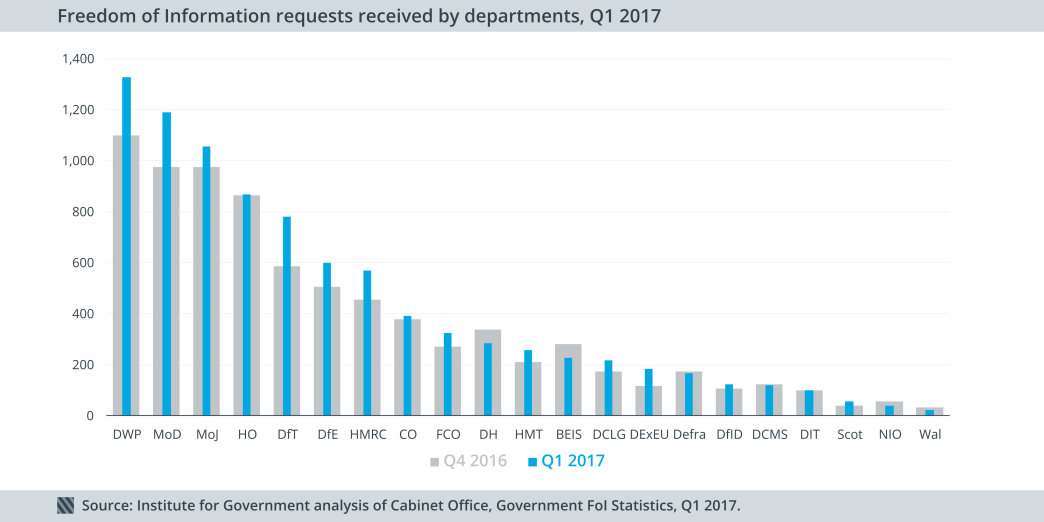
Overall, the number of requests increased by 13% from 7,867 in Q4 2016 to 8,894 in Q1 2017.
Most departments found themselves responding to more FoI requests in Q1 2017 than in the previous quarter. This included many of the departments already receiving a high volume of requests (DWP, MoD, MoJ, and DfT) as well as DExEU. DH and BEIS, however, saw the number of requests fall.
In previous years, FoI requests have typically spiked in Q1, so this increase shouldn’t be a surprise. When compared to Q1 of last year (rather than Q4), the number of requests received has actually fallen 3% (down from 9,208 requests).
On FoI, DExEU is the least transparent department in government.
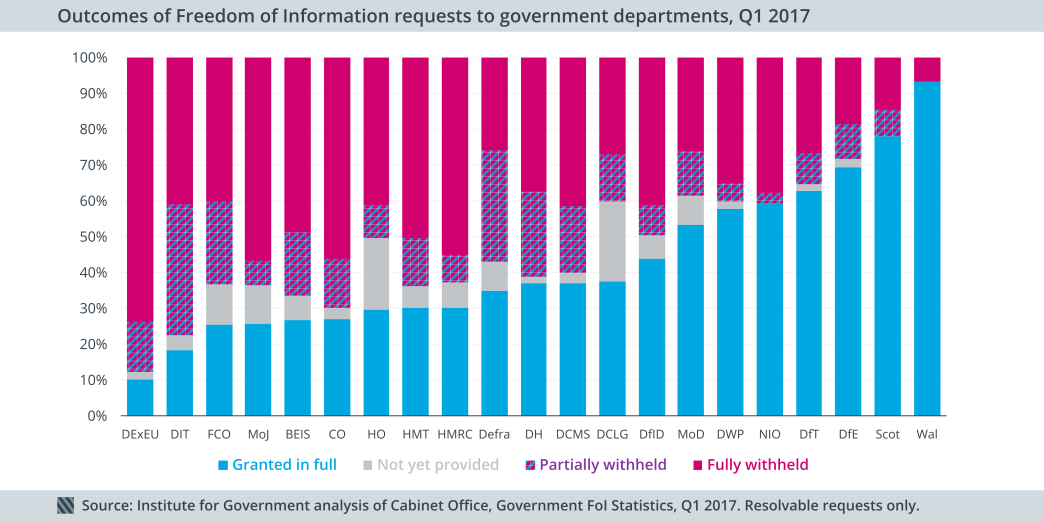
DExEU granted only 10% of FoI requests in full in Q1 2017. In the three months before Article 50 was triggered, DExEU withheld all information in relation to an astonishing 74% of FoI requests, while 14% of the requests were partly withheld.
The two other Brexit departments (DIT and FCO) are the second and third worst performers when it comes to granting information. This may reflect the Government’s desire not to "provide a running commentary" of Brexit negotiations – but this may be counterproductive in the face of increasing EU transparency.
Only a third of departments granted FoI requests in full more than 50% of the time.
Withholding information is becoming more common across government departments.
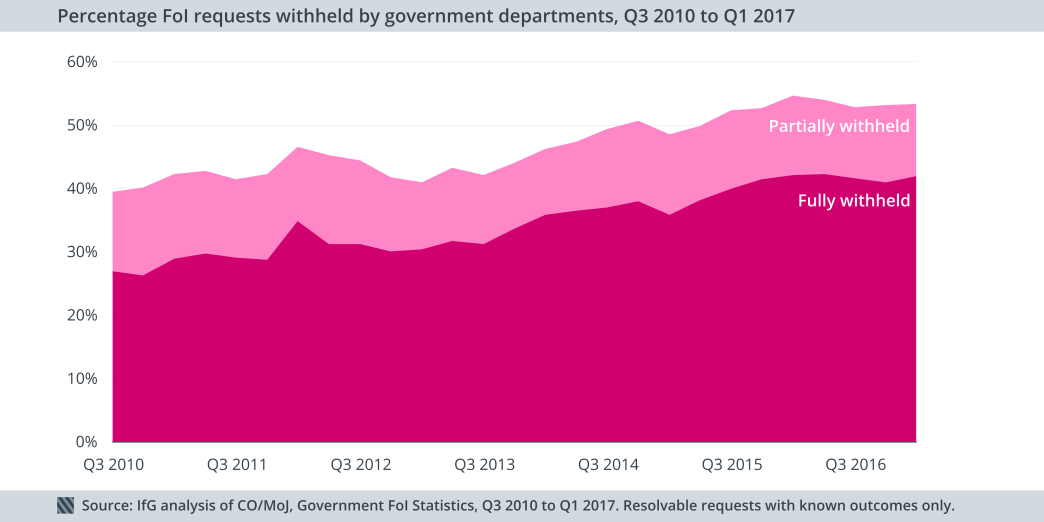
Departments withheld information in part or in full to 53% of requests made in Q1 2017, up from 39% in Q3 of 2010.
This is driven by an increase in the percentage of requests where information was fully withheld by departments, as the number of requests that were partially withheld held steady.
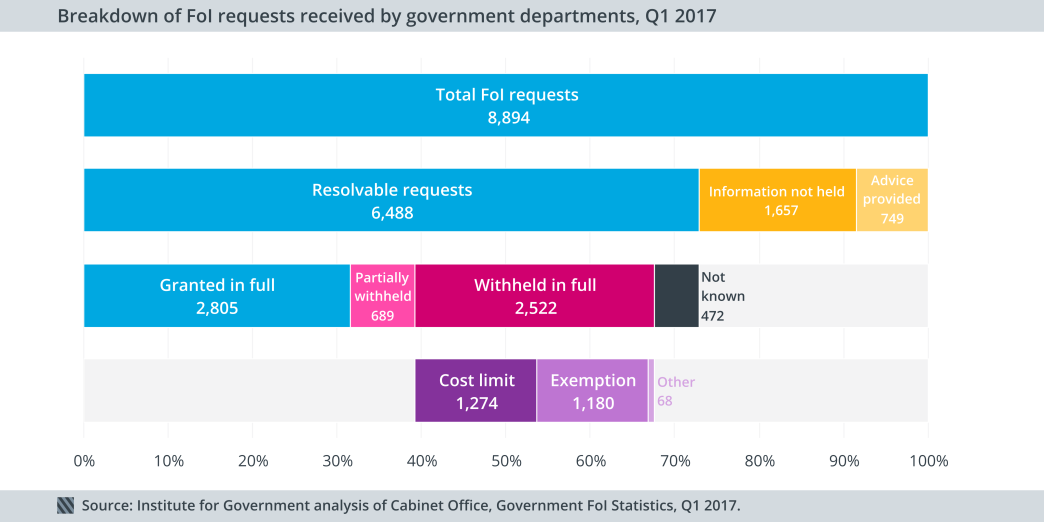
Requests can be withheld in full for two main reasons:
- Cost limits – if complying with an FoI request is estimated to be higher than £600, then a department may refuse the request – this accounts for 51% of the refusals.
- Exemptions – there are various exemptions outlined in the Freedom of Information Act 2000, which account for 47% of the refusals.
The other requests were refused because they were repeated or deemed vexatious.
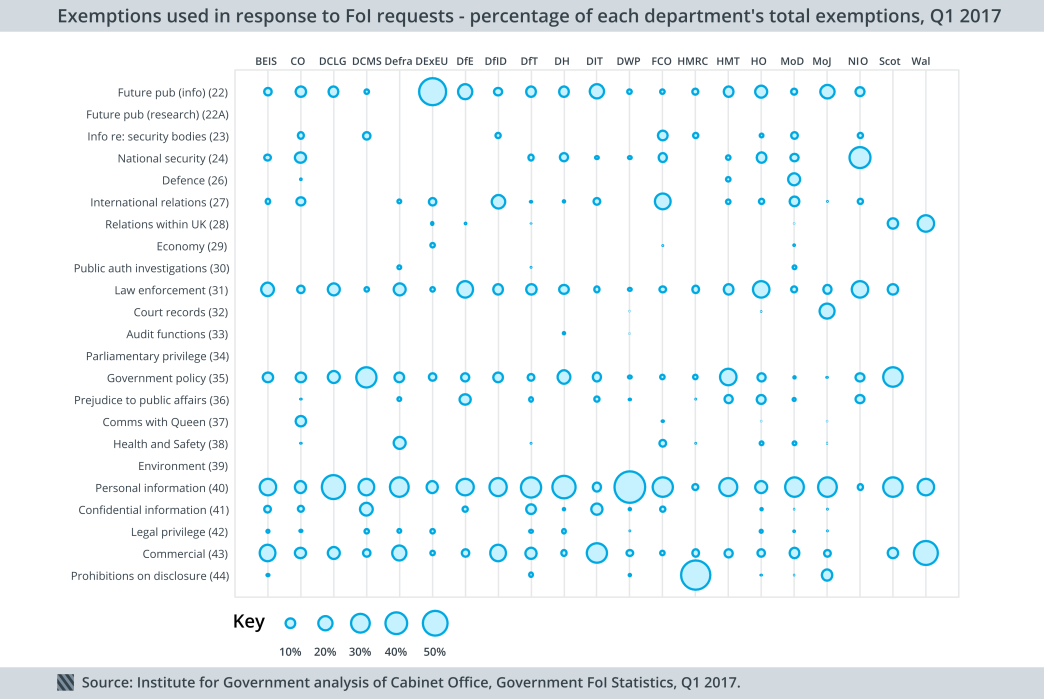
The exemption most often used by departments was in relation to ‘Personal Information’, which was used 734 times in the last quarter.
60% of exemptions used by DExEU were because the department intended to publish the information in the future. 69% of exemptions used by HMRC were due to the department being prohibited by law from disclosing the requested information.
Government responses to FoI requests have become more timely in the last two quarters…
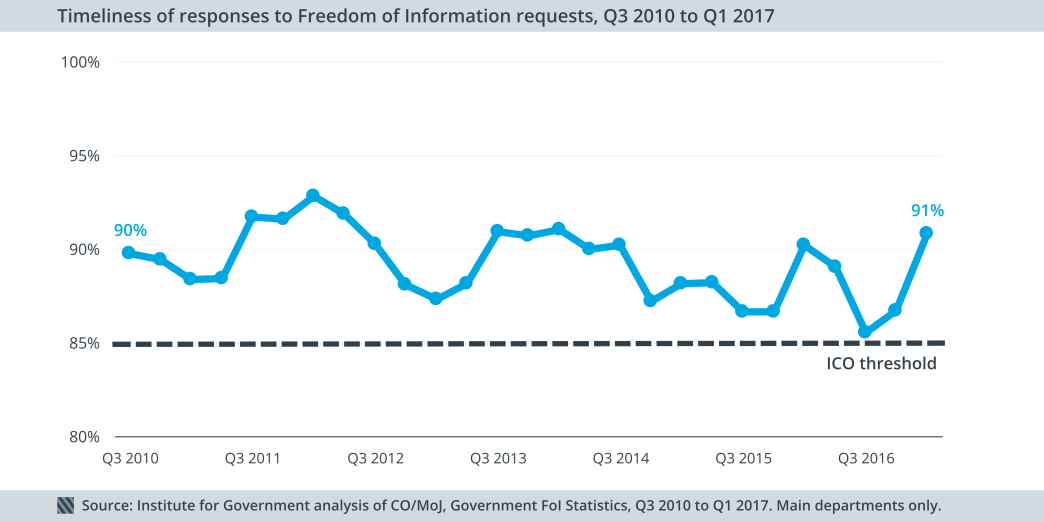
In Q1 2017, government departments responded to 91% of FoI requests on time, up from 87% in the previous quarter. This is broadly like the 90% of requests that were on time in Q3 2010 and since then the timeliness of responses to FoI requests has held steady (between 86% and 93%).
… but some departments, including DCLG, are struggling to respond to FoI requests on time.
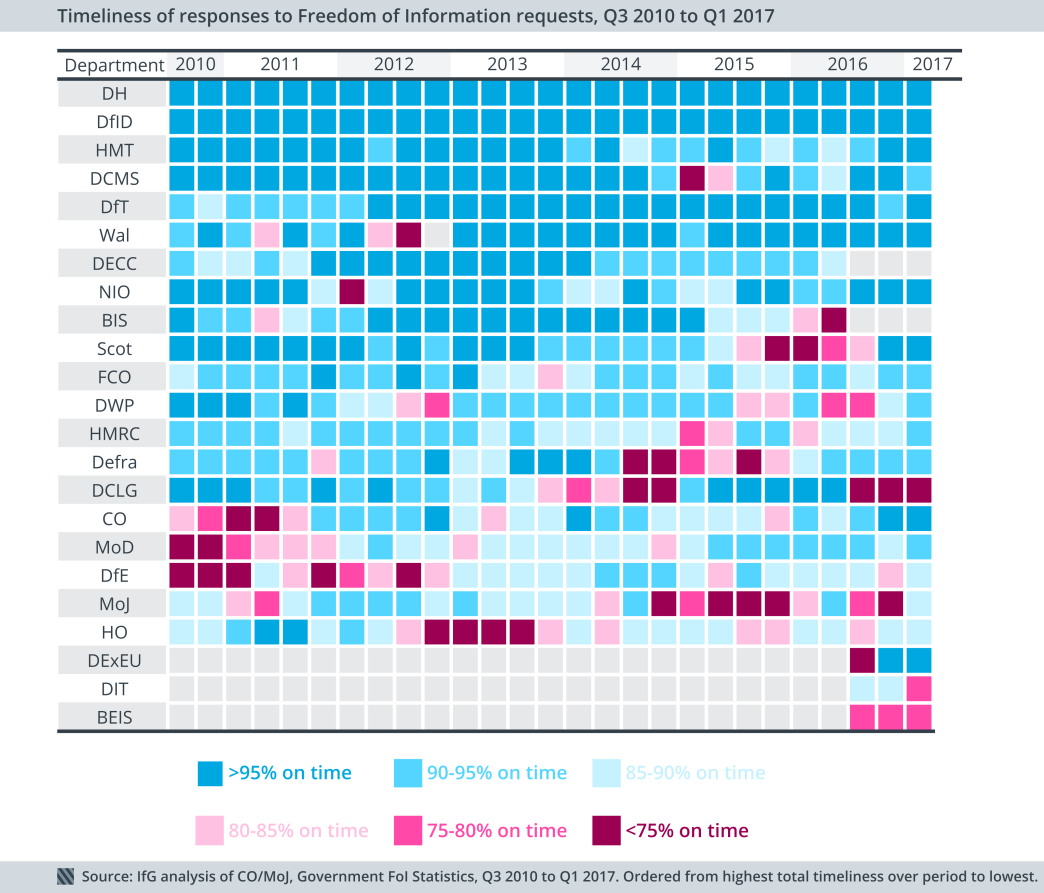
While timeliness is improving overall, there are worrying trends at the departmental level. DCLG continues to struggle with responding to requests on time – only responding to 57% of requests in a timely manner in Q1 2017 (although this is up from 44% in Q4 2016).
In its third quarter of existence, BEIS has yet to hit the target of 85% timeliness set by the Information Commissioner’s Office (ICO). DIT has now also fallen below this target.
Meanwhile, MoJ and DfE – having failed to reach the target in Q4 2016 – are now responding to over 85% of requests on time.
The Government needs to show that it is taking transparency seriously.
The IfG is not the only ones to notice worrying trends in the Government’s responses to FoI requests. The BBC recently reported that some key government departments have a “record of frequent and persistent delays and unhelpfulness in their handling of Freedom of Information (FOI) requests”, citing the ICO’s repeated criticisms of the MoJ, Home Office and Cabinet Office.
As our analysis shows, the MoJ and HO have both had prolonged periods of failing to adequately respond to requests on time and previous analysis has shown that the CO and MoJ are among the departments that refuse the most requests.
With concern growing about government transparency in general, it is crucial that government departments and the ICO take action to reverse recent trends.
Abbreviations for government departments
This post was updated on 26 June to reflect the variations in FoI requests in different quarters.
- Supporting document
- Whitehall monitor 17.pdf (PDF, 2.17 MB)